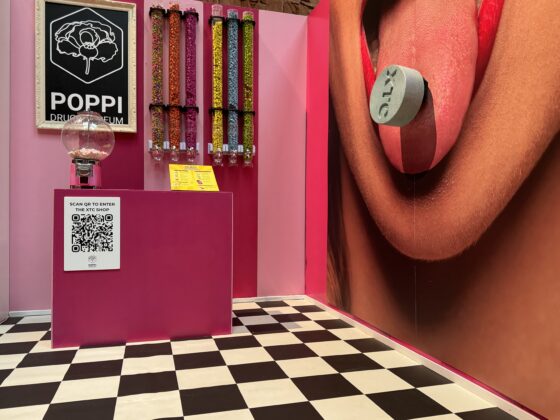Amsterdam’s mayor Femke Halsema is first on the list of signatories to a new “health-focused” manifesto calling for decriminalising and regulating drugs such as cocaine.
The manifesto was launched at what was described as a “historic” conference where global mayors and drug experts argued it would be more effective to regulate drugs like cocaine than the current state of prohibition and law-enforcement.
Halsema said she believed it was a “moderate and sensible position” to argue – as she did a year ago to a group of European mayors – that the “war on drugs has failed” so it would be better to “de-criminalise drug use and regulate it”.
Defending her position from “hot-tempered” attack and distancing herself from justice minister Dilan Yeşilgöz, who said she was not waging a war on drugs by cracking down at harbours, Halsema told a packed conference that regulation of drugs such as cocaine was the only way to reduce social damage.
“If we continue to fight drugs and drug users, we will remain caught in a never-ending war on drugs,” she said, opening the Dealing with Drugs conference in Amsterdam. “If we want to fight crime and the violence associated with the drug trade, we need to take the drug market away from the criminals.
“Not by creating a free market, but by taking a controlled, responsible approach. This will reduce drug-related crime, improve public health and the general wellbeing of our citizens and relieve our criminal justice system.”

Corruption
Presenting a manifesto signed already by Alec von Graffenried, mayor of Bern in Switzerland and Claudia López, former mayor of Bogotá in Colombia, she said she hoped the realities of international city life would open the door to discussion. “Thank you for being a force hopefully for the normalisation of regulation of drugs,” she told the conference. “We opened a window but I hope it’s going to be a door…the beginning of humane, civilised and effective drug policies.”
While some speakers accepted that they were speaking to a coalition of the willing – “preaching to the choir” – others stressed that a drug approach based on defunding criminal networks and reducing health harms was realistic and pragmatic. Cannabis has been legalised and regulated in multiple places around the world, a trial has begun in Breda, and the Swiss capital of Bern is now working on a pilot of regulated cocaine, after an explosion of open crack cocaine use on the streets last year.
López, who has just completed a four-year term as Bogotán mayor, said Colombia’s issues were a warning to the world. “I think no country has suffered more corruption and violence than Colombia,” she said. “It happened in Colombia: it will happen in the Netherlands. The most dangerous weapons that the drug traffickers have are not rifles, but money: the amount they are able to make will destroy any democracy. Violence and corruption are the most dangerous issues.”
Pilot
In Switzerland, said von Graffenried, people have a horror of returning to an era of open heroin use and devastation in the 1980s – which led to a policy of needle exchanges, a methodone prescription programme and clean injection rooms.
“Cocaine consumption that was very discreet for a very long time came back through the streets and we have problems in public space,” he said. “We have been very successful with the heroin strategy. We are now trying to find a cannabis strategy [with a pilot for regulated usage] and I think it could be a success. We are looking for new success with the cocaine regularisation strategy.”
In an opinion piece in The Guardian earlier this month – which inspired a flood of sign-ups to the conference – Halsema warned that the “Netherlands is in danger of becoming a narco-state” where criminal money is “contaminating the legal economy, especially in real estate, business services and hospitality”. This week she told the Financieele Dagblad that “cocaine, for example, is less harmful than alcohol.”
In a panel debate, she added: “There has always been this hippie-like, naïve atmosphere surrounding legalisation but there’s a harsh discussion we have to have. There were three murders which directly affected the justice system, the brother of a witness, a lawyer and a journalist, involved in a trial of an infamous [alleged] drug lord. These murders were performed by hired killers, youngsters from our most vulnerable neighbourhoods who were paid not so much – up to €100,000 for spending the rest of your life in jail. This is what drug money does.”


“Pragmatic”
Former undercover police officer Neil Woods, a board member of the Law Enforcement Action Partnership in the UK, argued that hard enforcement and police action had a counterproductive effect in ensuring that the most violent and terrifying criminals thrive. “The most successful gangsters are the ones who can intimidate everybody to not grass them up,” he said. “This is a significant driver of the violence.”
According to Pavel Bém, former mayor of Prague, regulating illegal drugs could also provide a funding model to deal with prevention and treatment. “There is no way other than to regulate these markets, to make clear the economic benefits don’t go to the criminals but to the state and then we have the funds to do the first part,” he said.
Some journalists noted that several important names were not present at the conference – such as the justice minister herself or Rotterdam mayor Ahmed Aboutaleb, who is headed to Latin America to talk about cooperation against drug imports and criminality. There were, however, representatives from the justice department and city of Rotterdam present, alongside multiple Dutch and international institutes, academics and treatment experts. Several speakers argued that while nations decide drug policy, research and trials often start at a city level.
“Yesterday evening our minister of justice was asked about the conference and her answer was it’s not an issue,” said Halsema. “Well, I think today showed that it is an issue. It’s not soft versus tough on crime. It’s pragmatic and it’s the only way we can go.”



